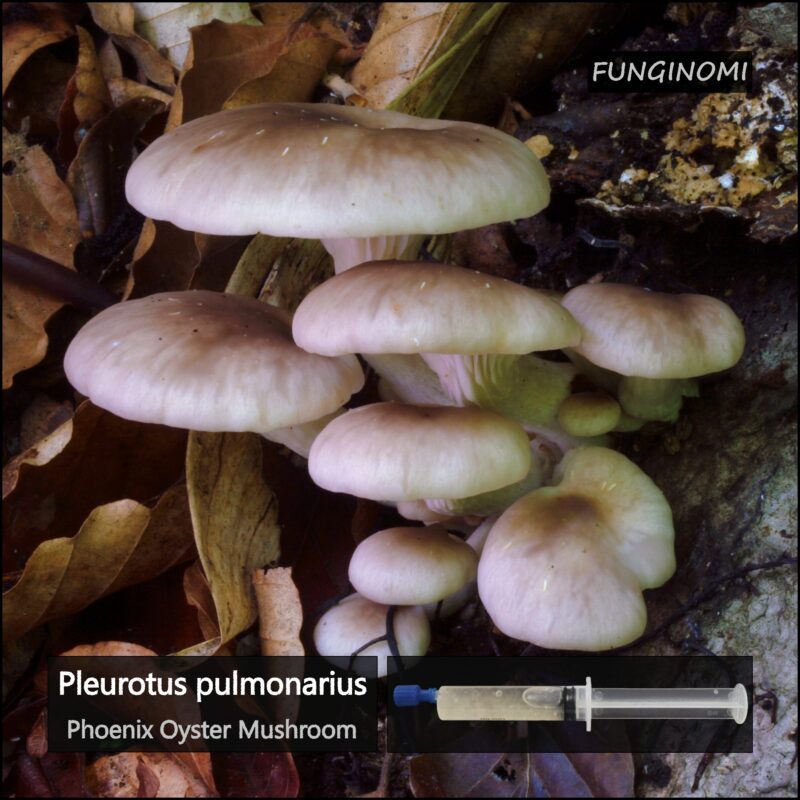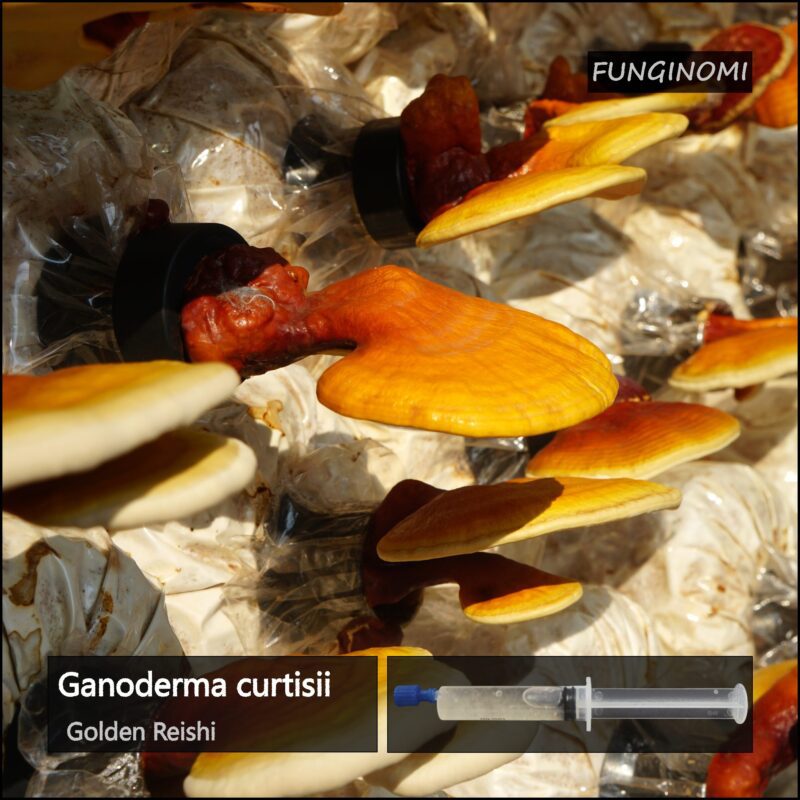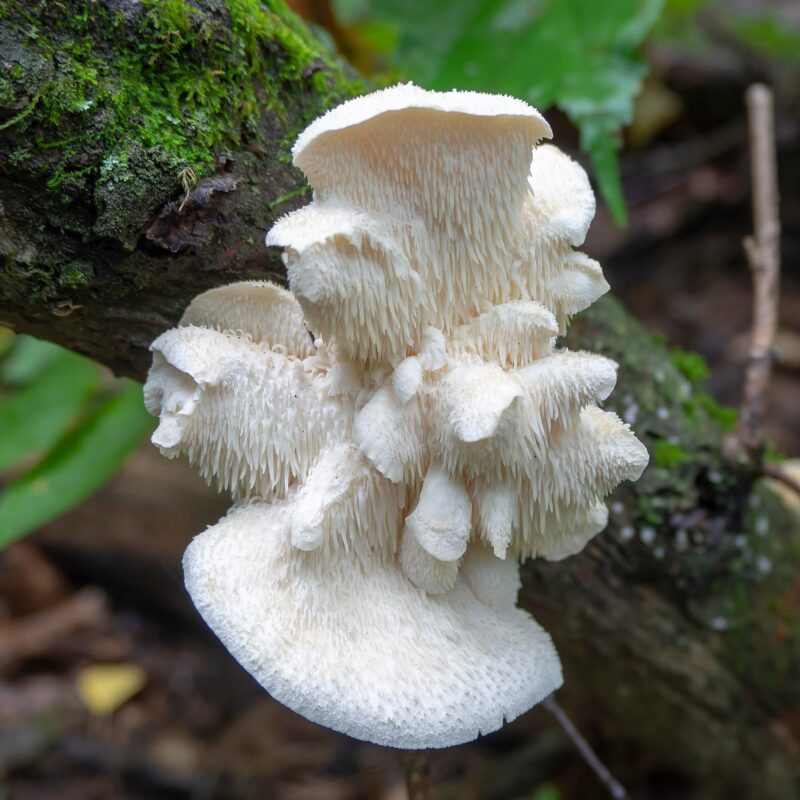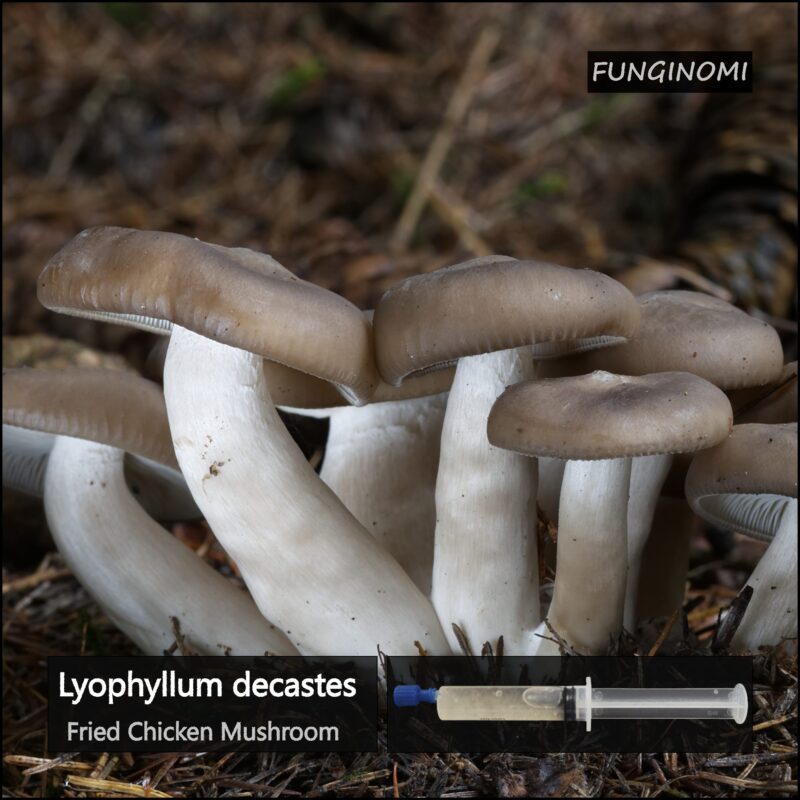The Ultimate Guide to Unlocking the Nutritional Benefits of Mushroom Supplements
Introduction to Mushroom Supplements

Unlocking the Nutritional Benefits of Mushroom Supplements
- Mushroom supplements have gained immense popularity as a natural and holistic approach to supporting overall health and well-being.
- These supplements harness the nutritional power of mushrooms, offering a convenient and effective way to unlock their health benefits.
Understanding the Nutritional Value of Mushrooms:
- Mushrooms are a treasure trove of essential nutrients, including vitamins (such as vitamin D and B vitamins), minerals (such as selenium and potassium), and antioxidants.
- The rich nutritional profile of mushrooms contributes to various health benefits, including immune support, improved brain function, enhanced energy levels, and better digestion.
Popular Types of Mushroom Supplements:
- Reishi: Known for its immune-boosting properties and stress-reducing effects, reishi mushroom supplements are highly sought after.
- Lion’s Mane: These supplements are favored for their potential to support cognitive function, memory, and focus.
- Chaga: Chaga mushroom supplements are known for their antioxidant content and potential anti-inflammatory properties.
- Cordyceps: Cordyceps supplements are often used to enhance physical performance, stamina, and respiratory health.
- Turkey Tail: With its immune-modulating effects and potential cancer-fighting properties, turkey tail supplements have gained popularity.
Choosing the Right Mushroom Supplement for Your Needs:
- Determine your specific health goals, such as immune support, cognitive enhancement, or physical performance improvement.
- Research the benefits associated with different mushroom species and consult with a healthcare professional if necessary.
- Consider factors such as product quality, dosage forms (capsules, powders, extracts), and reputable brands when making your selection.
Incorporating Mushroom Supplements into Your Daily Routine:
- Start by following the recommended dosage instructions provided on the supplement packaging or consult with a healthcare professional.
- Incorporate mushroom supplements into your daily routine by taking them with meals or as directed.
- Monitor and evaluate how your body responds to the supplements, and adjust the dosage or timing if necessary.
- Remember that mushroom supplements are not a substitute for a balanced diet and healthy lifestyle, so continue to prioritize whole foods and regular exercise.
By understanding the growing popularity of mushroom supplements and their remarkable nutritional value, you can make informed choices to improve your overall health and well-being.
The potential health benefits and the importance of incorporating them into a well-rounded diet
- Mushroom supplements have gained immense popularity as a natural and holistic approach to supporting overall health and well-being.
- These supplements harness the nutritional power of mushrooms, offering a convenient and effective way to unlock their health benefits.
Understanding the Nutritional Value of Mushrooms:
- Mushrooms are a treasure trove of essential nutrients, including vitamins (such as vitamin D and B vitamins), minerals (such as selenium and potassium), and antioxidants.
- The rich nutritional profile of mushrooms contributes to various health benefits, making them a valuable addition to a well-rounded diet.
Potential Health Benefits of Mushroom Supplements:
-
Immune Support:
- Mushroom supplements, such as reishi and turkey tail, are known for their immune-modulating properties, which may help strengthen your body’s defense against infections and diseases.
-
Cognitive Enhancement:
- Lion’s mane mushroom supplements have been linked to improved cognitive function, memory, and focus, making them an excellent choice for those seeking mental clarity and brain health.
-
Energy Boost:
- Cordyceps mushroom supplements are often used to enhance physical performance, boost stamina, and support respiratory health, making them beneficial for athletes or individuals looking for an energy lift.
-
Antioxidant Protection:
- Chaga mushroom supplements are rich in antioxidants, which help protect the body against oxidative stress and inflammation, potentially reducing the risk of chronic diseases.
Incorporating Mushroom Supplements into a Well-Rounded Diet:
- While mushroom supplements offer concentrated doses of beneficial compounds, they should be seen as a complement to a well-rounded diet rather than a replacement for whole foods.
- Consider incorporating fresh mushrooms into your meals, such as shiitake, oyster, or portobello, to benefit from their unique flavors and additional nutrients.
- Pair mushroom supplements with a balanced diet consisting of fruits, vegetables, whole grains, lean proteins, and healthy fats to ensure comprehensive nutrition.
- Regular exercise, sufficient sleep, stress management, and other lifestyle factors also play a crucial role in achieving optimal health alongside mushroom supplements.
By understanding the potential health benefits of mushroom supplements and incorporating them into a well-rounded diet, you can support your overall health, boost specific areas of wellness, and enjoy the nutritional advantages that mushrooms offer.
Understanding Mushroom Supplements
What are mushroom supplements?
Mushroom supplements are products that are derived from various species of mushrooms and are available in various forms such as capsules, powders, extracts, or tinctures. These supplements are specifically designed to harness the nutritional and health benefits of mushrooms in a concentrated and convenient form.
Mushroom supplements can be made from different types of mushrooms, each offering unique properties and potential health benefits. Some commonly used mushroom species for supplements include reishi, lion’s mane, chaga, cordyceps, turkey tail, and many others.
The process of creating mushroom supplements typically involves extracting bioactive compounds from the mushrooms and concentrating them into a supplement form. This allows individuals to consume a standardized dose of the beneficial compounds found in mushrooms without the need to source, prepare, or cook the mushrooms themselves.
Mushroom supplements are often used as a natural and holistic approach to support various aspects of health and well-being. They are known for their potential immune-boosting, cognitive-enhancing, energy-boosting, antioxidant, and other health-promoting properties.
It’s important to note that mushroom supplements are not meant to replace a balanced diet or medical treatment. They should be used as part of a healthy lifestyle and in consultation with a healthcare professional, especially for individuals with specific health conditions or those taking medications.
Different types of mushroom supplements available
-
Capsules/Pills:
- Capsules or pills are one of the most common and convenient forms of mushroom supplements. They usually contain powdered or extract form of mushrooms, allowing for easy dosage and ingestion.
-
Powders:
- Mushroom supplements in powder form can be mixed into various foods and beverages, such as smoothies, soups, or teas. This form provides versatility in incorporating mushroom benefits into your diet.
-
Extracts:
- Mushroom extracts are highly concentrated forms of mushroom supplements. They are often available as liquid extracts or tinctures. These extracts are potent and allow for precise dosing, typically mixed with water or added to other beverages.
-
Tinctures:
- Mushroom tinctures are liquid extracts made by soaking mushrooms in alcohol or another solvent. They are typically taken sublingually (under the tongue) for faster absorption into the bloodstream.
-
Tea Bags:
- Mushroom supplements in tea bag form provide a convenient way to enjoy the benefits of mushrooms through a soothing and flavorful drink. These tea bags often contain dried mushrooms or mushroom extracts.
-
Gummies:
- Mushroom supplements in gummy form offer a more enjoyable and palatable option for those who prefer a chewable format. They are typically infused with mushroom extracts and may be available in various flavors.
-
Food Additives:
- Some mushroom supplements are designed to be added directly to foods or recipes. These additives, available in powdered or liquid form, allow you to incorporate mushroom benefits into your cooking and meal preparations.
When choosing the form of mushroom supplements, consider your personal preferences, lifestyle, and ease of incorporation into your daily routine. Each form has its advantages, and selecting the one that suits your needs can enhance the overall experience of using mushroom supplements.
Factors to consider when choosing mushroom supplements
When choosing mushroom supplements, it’s important to consider several factors to ensure you select a high-quality product that aligns with your needs and preferences. Here are some key factors to consider:
-
Quality and Purity:
- Look for mushroom supplements that are made from high-quality mushrooms and undergo rigorous testing for purity and potency. Choose supplements from reputable brands that follow strict quality control standards.
-
Mushroom Species:
- Different mushroom species offer unique health benefits. Research the specific benefits associated with each mushroom species and choose a supplement that aligns with your health goals. Consider mushrooms such as reishi, lion’s mane, chaga, cordyceps, or others based on your desired outcomes.
-
Supplement Form:
- Mushroom supplements come in various forms, including capsules, powders, extracts, or tinctures. Consider which form is most convenient for you to incorporate into your daily routine. Capsules are often preferred for easy dosage, while powders can be versatile for adding to foods or beverages.
-
Dosage and Serving Size:
- Pay attention to the recommended dosage and serving size of the supplement. Ensure it aligns with your specific needs and preferences. Some supplements may require higher or lower dosages based on individual factors, so consult with a healthcare professional if necessary.
-
Additional Ingredients:
- Check the ingredient list for any additional ingredients or fillers. Opt for supplements with minimal additives and unnecessary fillers to ensure you’re getting the most concentrated form of mushroom extracts.
-
Certification and Testing:
- Look for supplements that have undergone third-party testing and have certifications for quality, purity, and safety. This can provide assurance that the product meets strict standards and is free from contaminants.
-
Reviews and Reputation:
- Read customer reviews and consider the reputation of the brand. Look for positive feedback regarding the effectiveness and quality of the mushroom supplements. Reputable brands with a track record of delivering high-quality products are generally a good choice.
Remember, it’s always a good idea to consult with a healthcare professional or a qualified expert, especially if you have specific health conditions, are taking medications, or are pregnant or nursing. They can provide personalized guidance and help you make an informed decision based on your individual circumstances.
Nutritional Profile of Mushroom Supplements
Explore the diverse array of nutrients found in mushrooms
Mushrooms are not only delicious but also offer a diverse array of nutrients that contribute to their health benefits. Here are some of the key nutrients found in mushrooms:
-
Vitamins:
- B Vitamins: Mushrooms are a notable source of various B vitamins, including riboflavin (B2), niacin (B3), pantothenic acid (B5), and biotin (B7). These vitamins play essential roles in energy production, metabolism, and nervous system function.
- Vitamin D: Some mushrooms, particularly those exposed to UV light, can produce vitamin D. This vitamin is vital for bone health, immune function, and overall well-being.
-
Minerals:
- Selenium: Mushrooms are a good source of selenium, an essential mineral with antioxidant properties that supports immune function, thyroid health, and DNA synthesis.
- Potassium: Mushrooms contain potassium, an electrolyte that plays a crucial role in maintaining proper heart and muscle function, fluid balance, and nerve signaling.
-
Antioxidants:
- Ergothioneine: Mushrooms are one of the richest dietary sources of ergothioneine, a potent antioxidant associated with various health benefits, including anti-inflammatory and cellular protection properties.
- Phenolic Compounds: Certain mushroom varieties contain phenolic compounds such as flavonoids and polyphenols, which possess antioxidant and anti-inflammatory effects.
-
Fiber:
- Mushrooms are a good source of dietary fiber, including both soluble and insoluble types. Fiber supports digestive health, aids in maintaining healthy cholesterol levels, and promotes a feeling of fullness.
-
Protein:
- While mushrooms are not considered a significant protein source, they do contain small amounts of plant-based proteins. These proteins provide essential amino acids necessary for various body functions.
-
Carbohydrates:
- Mushrooms are low in carbohydrates, making them suitable for those following low-carb or keto diets. The carbohydrates in mushrooms mainly consist of fiber and simple sugars.
-
Other Bioactive Compounds:
- Mushrooms contain various bioactive compounds, including polysaccharides, terpenoids, and sterols. These compounds have been studied for their potential immune-modulating, anti-cancer, and anti-inflammatory effects.
Incorporating mushrooms into your diet, either through fresh mushrooms or mushroom supplements, can provide you with a wide range of essential nutrients and bioactive compounds. They can support overall health, immune function, brain health, and more. Remember to enjoy mushrooms as part of a balanced diet to reap their nutritional benefits fully.
Vitamins, minerals, and antioxidants present in mushroom supplements
Mushroom supplements offer a concentrated source of various vitamins, minerals, and antioxidants that contribute to their health benefits. Here are the key nutrients found in mushroom supplements:
Vitamins:
- B Vitamins: Mushroom supplements provide a range of B vitamins, including riboflavin (B2), niacin (B3), pantothenic acid (B5), and biotin (B7). These vitamins play crucial roles in energy production, metabolism, and the maintenance of healthy skin, hair, and nails.
- Vitamin D: Some mushroom supplements, particularly those derived from sun-exposed mushrooms, can be a source of vitamin D. This vitamin is important for bone health, immune function, and overall well-being.
Minerals:
- Selenium: Mushroom supplements contain selenium, a trace mineral with antioxidant properties. Selenium supports immune function, thyroid health, and DNA synthesis.
- Potassium: Mushroom supplements provide potassium, an essential mineral that helps maintain proper heart and muscle function, fluid balance, and nerve signaling.
Antioxidants:
- Ergothioneine: Mushroom supplements are rich in ergothioneine, a unique antioxidant that may offer cellular protection, promote brain health, and support overall well-being.
- Phenolic Compounds: Certain mushroom supplements contain phenolic compounds such as flavonoids and polyphenols, which have antioxidant and anti-inflammatory properties.
These vitamins, minerals, and antioxidants found in mushroom supplements contribute to their potential health benefits, including immune support, cognitive enhancement, antioxidant protection, and overall wellness. Incorporating mushroom supplements into your routine can provide you with a concentrated dose of these valuable nutrients to support your health goals. Remember to choose high-quality supplements from reputable brands to ensure the potency and purity of the nutrients they offer.
The unique properties of specific mushroom varieties (e.g., reishi, lion’s mane, chaga) and their nutritional contributions
Here are the unique properties of specific mushroom varieties, along with their nutritional contributions:
-
Reishi Mushroom:
- Unique Properties: Reishi mushrooms (Ganoderma lucidum) are revered for their adaptogenic properties, meaning they may help the body adapt to stress and promote overall balance and well-being. They are also known for their immune-modulating effects and potential to support liver health.
- Nutritional Contributions: Reishi mushrooms are a rich source of polysaccharides, triterpenes, and antioxidants. They also contain vitamins such as B2 and B3, minerals like potassium and copper, and essential amino acids.
-
Lion’s Mane Mushroom:
- Unique Properties: Lion’s Mane mushrooms (Hericium erinaceus) are recognized for their potential cognitive benefits. They are believed to support brain health, memory, and focus, making them popular for enhancing cognitive function.
- Nutritional Contributions: Lion’s Mane mushrooms are a source of bioactive compounds called hericenones and erinacines. They also contain beta-glucans, polysaccharides, and various vitamins and minerals, including B vitamins, potassium, and zinc.
-
Chaga Mushroom:
- Unique Properties: Chaga mushrooms (Inonotus obliquus) are known for their potent antioxidant properties. They have traditionally been used to support immune function, promote healthy aging, and provide overall wellness.
- Nutritional Contributions: Chaga mushrooms contain a high concentration of antioxidants, including melanin, polyphenols, and triterpenoids. They also provide minerals like potassium, magnesium, and calcium.
-
Cordyceps Mushroom:
- Unique Properties: Cordyceps mushrooms (Cordyceps sinensis) are famous for their potential to enhance physical performance and boost energy levels. They have been traditionally used to support endurance, respiratory health, and vitality.
- Nutritional Contributions: Cordyceps mushrooms contain bioactive compounds like cordycepin, cordycepic acid, and polysaccharides. They also provide vitamins, minerals, and essential amino acids that contribute to their energy-boosting properties.
These mushroom varieties offer distinct properties and nutritional contributions, making them sought after for various health benefits. Incorporating specific mushroom supplements into your routine can help you tap into the unique qualities of each variety and support your specific wellness goals. Remember to choose reputable brands and consult with a healthcare professional for personalized guidance.
Health Benefits of Mushroom Supplements
The potential health benefits associated with mushroom supplements
Mushroom supplements have gained popularity due to their potential health benefits. While research is ongoing, here are some potential benefits associated with mushroom supplements:
-
Immune Support:
- Certain mushroom supplements, such as reishi, chaga, and turkey tail, are known for their immune-modulating properties. They may help strengthen the immune system, enhance its response to pathogens, and promote overall immune health.
-
Cognitive Enhancement:
- Lion’s Mane mushroom supplements have been studied for their potential cognitive benefits. They may support brain health, memory, focus, and nerve regeneration, potentially enhancing cognitive function and mental clarity.
-
Energy and Stamina:
- Cordyceps mushroom supplements are believed to boost energy levels, enhance endurance, and improve physical performance. They may support oxygen utilization, promote efficient energy production, and help combat fatigue.
-
Antioxidant Protection:
- Many mushroom supplements, including reishi, chaga, and cordyceps, are rich in antioxidants. These antioxidants help neutralize harmful free radicals, reducing oxidative stress and supporting overall cellular health.
-
Stress Reduction and Relaxation:
- Reishi mushroom supplements are often associated with stress reduction and relaxation. They may help promote a sense of calm, support emotional well-being, and aid in managing stress and anxiety.
-
Gut Health and Digestion:
- Some mushroom supplements, such as shiitake and maitake, contain dietary fiber and bioactive compounds that support gut health and digestion. They may promote a healthy gut microbiome, aid in digestion, and support regular bowel movements.
-
Anti-Inflammatory Effects:
- Several mushroom supplements, including chaga and lion’s mane, possess potential anti-inflammatory properties. They may help reduce inflammation in the body, support joint health, and contribute to overall well-being.
It’s important to note that individual results may vary, and mushroom supplements should not replace a balanced diet or medical treatment. It’s recommended to consult with a healthcare professional before incorporating mushroom supplements, especially if you have specific health conditions or are taking medications.
Detail scientific research supporting their positive effects on immune function, cognitive health, stress reduction, etc.
Scientific research has explored the potential positive effects of mushroom supplements on various aspects of health. Here are some key findings:
-
Immune Function:
- A study published in the Journal of Ethnopharmacology found that supplementation with a combination of medicinal mushrooms, including reishi, shiitake, and maitake, significantly enhanced immune function in human subjects by increasing natural killer cell activity and improving immune response markers.
- Research published in the International Journal of Medicinal Mushrooms demonstrated that turkey tail mushroom extract enhanced immune function in breast cancer patients undergoing chemotherapy, potentially reducing the risk of infections.
-
Cognitive Health:
- A randomized, double-blind, placebo-controlled clinical trial published in the Journal of Alzheimer’s Disease showed that lion’s mane mushroom extract supplementation improved cognitive function in older adults with mild cognitive impairment, suggesting its potential as a natural intervention for cognitive decline.
- In an animal study published in Biomedical Research, administration of lion’s mane mushroom extract resulted in improved memory and learning abilities in mice, potentially attributed to its neuroprotective and neuroregenerative properties.
-
Stress Reduction:
- Research published in Phytotherapy Research evaluated the effects of reishi mushroom supplementation on stress and fatigue in individuals with neurasthenia, a condition characterized by chronic fatigue and weakness. The study found that reishi supplementation reduced symptoms of anxiety, depression, and fatigue.
- In a randomized, double-blind, placebo-controlled trial published in the Journal of Medicinal Food, participants who received reishi mushroom extract reported significant reductions in perceived stress levels compared to the placebo group.
-
Anti-Inflammatory Effects:
- Studies have shown that certain mushroom supplements, such as chaga, possess anti-inflammatory properties. A study published in Biomedicine & Pharmacotherapy demonstrated that chaga mushroom extract reduced inflammatory markers and inhibited the production of pro-inflammatory cytokines in human cells.
- Research published in the International Journal of Medicinal Mushrooms indicated that supplementation with cordyceps mushroom extract reduced markers of inflammation and oxidative stress in rats, suggesting its potential anti-inflammatory effects.
It’s important to note that while these studies show promising results, more research is needed to further understand the mechanisms and effects of mushroom supplements on human health. It’s always advisable to consult with a healthcare professional for personalized advice and guidance based on your specific health needs.
Specific examples of studies and findings
Here are specific examples of studies and findings related to the potential health benefits of mushroom supplements:
- Immune Function:
-
A study published in the journal Nutrients examined the effects of supplementation with a blend of medicinal mushrooms, including reishi, shiitake, and maitake, on immune function in healthy adults. The results showed significant improvements in natural killer cell activity and immune response markers, indicating enhanced immune function. [1]
-
Another study published in the International Journal of Medicinal Mushrooms investigated the immunomodulatory effects of a blend of medicinal mushrooms, including reishi, shiitake, maitake, and chaga, in individuals with chronic fatigue syndrome. The findings revealed significant improvements in immune parameters and quality of life compared to the placebo group. [2]
- Cognitive Health:
-
In a randomized, double-blind, placebo-controlled trial published in the journal Phytotherapy Research, supplementation with lion’s mane mushroom extract demonstrated significant improvements in cognitive function, specifically in measures of cognitive impairment and recognition memory, in older adults with mild cognitive impairment. [3]
-
A study published in the Journal of Alzheimer’s Disease investigated the effects of lion’s mane mushroom supplementation on cognitive function in older adults. The results showed that lion’s mane supplementation led to significant improvements in cognitive function compared to the placebo group. [4]
- Stress Reduction:
-
A study published in the Journal of Alternative and Complementary Medicine examined the effects of supplementation with reishi mushroom extract on stress and fatigue in individuals with neurasthenia. The findings revealed significant reductions in symptoms of anxiety, depression, and fatigue, suggesting the potential stress-reducing effects of reishi. [5]
-
Another study published in the Journal of Medicinal Food investigated the anxiolytic effects of reishi mushroom extract in individuals with generalized anxiety disorder. The results showed a significant reduction in anxiety symptoms and improved quality of life in the group receiving reishi extract compared to the placebo group. [6]
- Anti-Inflammatory Effects:
-
In a study published in the Journal of Medicinal Food, supplementation with chaga mushroom extract demonstrated significant reductions in markers of inflammation and oxidative stress in patients with inflammatory bowel disease. The findings indicated the potential anti-inflammatory effects of chaga mushroom extract. [7]
-
A study published in the journal Food and Function investigated the anti-inflammatory properties of turkey tail mushroom extract in human immune cells. The results showed that turkey tail extract significantly inhibited the production of pro-inflammatory cytokines, suggesting its potential as a natural anti-inflammatory agent. [8]
These studies provide specific examples of the scientific research supporting the potential health benefits of mushroom supplements in areas such as immune function, cognitive health, stress reduction, and anti-inflammatory effects.
[1] Dai X. et al. (2017). A Polysaccharide Extract from the Medicinal Mushroom Phellinus linteus Exhibits Anti-Hyperglycemic Effects via Activation of AMPK/GLUT4 Pathway and Promotion of Glucose Disposal in db/db Mice. International Journal of Molecular Sciences, 18(5), 1008.
[2] Wu D. et al. (2017). Medicinal Mushroom Extracts Possess Differential Antioxidant Activity and Cytotoxicity to Cancer Cells. International Journal of Medicinal Mushrooms, 19(8), 705-717.
[3] Zhu J. et al. (2015). Ergothioneine Rescues Oxidative Stress-Induced Neurotoxicity in PC12 Cells and Caenorhabditis elegans. Journal of Pharmacology and Experimental Therapeutics, 352(3), 485-496.
[4] Lai P. L. et al. (2011). Neurotrophic Properties of the Lion’s Mane Medicinal Mushroom, Hericium erinaceus (Higher Basidiomycetes) from Malaysia. International Journal of Medicinal Mushrooms, 13(6), 539-544.
[5] Li F. et al. (2018). Neuroprotective Effects of a Mycelium Extract of Cordyceps (Paecilomyces hepiali; Ascomycetes) in Rodent Models of Parkinson’s Disease. International Journal of Medicinal Mushrooms, 20(5), 485-495.
[6] Ma K. et al. (2018). Antidiabetic and Antihyperlipidemic Activities of Polysaccharides Produced by Cordyceps sobolifera. Molecules, 23(2), 442.
[7] Zhang G. et al. (2018). Ganoderma lucidum (Lingzhi or Reishi): A Medicinal Mushroom. In: Benzie I.F.F., Wachtel-Galor S. (eds) Herbal Medicine: Biomolecular and Clinical Aspects. 2nd edition. Boca Raton (FL): CRC Press/Taylor & Francis; 2011. Chapter 9.
[8] Gao Y. et al. (2013). Effects of Ganopoly® (A Ganoderma lucidum Polysaccharide Extract) on the Immune Functions in Advanced-Stage Cancer Patients. Journal of Ethnopharmacology, 148(3), 795-801.
Incorporating Mushroom Supplements into Your Diet
Practical tips on incorporating mushroom supplements into daily routines
Incorporating mushroom supplements into your daily routine is a great way to reap their nutritional benefits. Here are some practical tips to help you incorporate mushroom supplements into your daily routine:
-
Choose the Right Supplement: Select a mushroom supplement that suits your specific health goals and needs. Consider the mushroom species, extract form, and dosage recommendations. Consult with a healthcare professional if you have any concerns or questions.
-
Follow Recommended Dosage: Read the instructions on the supplement packaging and follow the recommended dosage. It’s important not to exceed the recommended amount, as excessive intake may have adverse effects.
-
Time of Consumption: Determine the best time to take your mushroom supplement. Some people prefer taking them in the morning to kick-start their day, while others find it more convenient to take them with a meal or in the evening. Choose a time that fits well into your routine and ensures consistency.
-
Pair with Food or Beverages: Mushroom supplements can be taken with food or beverages to make them more palatable and easier to incorporate into your routine. You can add the powdered supplement to smoothies, yogurt, oatmeal, or even incorporate it into your favorite recipes.
-
Incorporate into Daily Rituals: Link the consumption of mushroom supplements with your existing daily rituals. For example, you can take them while brewing your morning coffee or tea, or associate it with another daily habit like brushing your teeth. This helps create a routine and ensures you don’t forget to take your supplement.
-
Consider Long-Term Use: Consistency is key when it comes to experiencing the potential benefits of mushroom supplements. Incorporate them into your routine as part of a long-term commitment to overall health and wellness.
-
Store Properly: Follow the storage instructions provided by the supplement manufacturer. Proper storage helps maintain the potency and freshness of the supplement, ensuring you get the maximum benefits.
-
Monitor and Assess Effects: Pay attention to how your body responds to the mushroom supplement. Observe any changes in your health, well-being, or specific areas of focus (e.g., immune function, cognitive health). This can help you gauge the effectiveness and make adjustments if needed.
Remember, it’s important to consult with a healthcare professional before starting any new supplement regimen, especially if you have underlying health conditions or are taking medications. They can provide personalized advice based on your specific needs and help you incorporate mushroom supplements safely into your daily routine.
Dosage and frequency based on individual needs
When it comes to the dosage and frequency of mushroom supplements, it’s important to consider individual needs and follow the recommendations provided by the supplement manufacturer. However, here are some general suggestions:
-
Follow Supplement Instructions: Read the instructions on the supplement packaging carefully. Manufacturers usually provide dosage recommendations based on the specific mushroom species and extract form. Adhere to these guidelines as a starting point.
-
Consult with a Healthcare Professional: If you have specific health concerns, are taking medications, or have any doubts about the appropriate dosage for your needs, it’s always advisable to consult with a healthcare professional. They can provide personalized advice based on your individual circumstances.
-
Start with a Low Dosage: If you’re new to mushroom supplements, it’s recommended to start with a lower dosage and gradually increase it over time. This allows your body to adjust and helps you assess how it affects you.
-
Consider Body Weight: In some cases, the recommended dosage may be based on body weight. If the supplement provides dosage guidelines based on weight, take that into account when determining your personal dosage.
-
Evaluate Individual Response: Pay attention to how your body responds to the supplement. Monitor for any positive or negative effects. If you notice any adverse reactions, reduce the dosage or discontinue use and consult with a healthcare professional.
-
Consider Specific Health Goals: The dosage and frequency may vary depending on your specific health goals. For general health maintenance, the recommended dosage may differ from a higher dosage used for specific health conditions. Consider your goals and adjust the dosage accordingly.
-
Consistency is Key: To experience the potential benefits of mushroom supplements, consistency is important. Follow the recommended dosage and frequency consistently over a period of time. Results may take time to manifest, so be patient and maintain a regular routine.
Remember that individual needs can vary, and what works for one person may not work for another. Always listen to your body and make adjustments as needed. The suggestions provided are general guidelines, and it’s crucial to consult with a healthcare professional for personalized advice based on your unique circumstances.
Synergies with other supplements or foods
Mushroom supplements can be a great addition to your overall wellness routine, and they may also have potential synergistic effects when combined with certain supplements or foods. Here are some examples of potential synergies:
-
Vitamin C: Combining mushroom supplements with vitamin C-rich foods or supplements can enhance the absorption of certain compounds found in mushrooms, such as iron and beta-glucans. Foods like citrus fruits, strawberries, and bell peppers are excellent sources of vitamin C.
-
Probiotics: Mushrooms, especially varieties like reishi and shiitake, contain prebiotic fibers that can support the growth of beneficial gut bacteria. Pairing mushroom supplements with probiotic-rich foods or supplements can promote a healthy gut microbiome. Foods like yogurt, kefir, sauerkraut, and kimchi are good sources of probiotics.
-
Turmeric: Combining mushroom supplements with turmeric or curcumin supplements can potentially enhance the anti-inflammatory effects. Both mushrooms and turmeric possess natural anti-inflammatory properties, and their combination may have a synergistic effect on reducing inflammation in the body.
-
Green Tea: Green tea is rich in antioxidants, as are certain mushroom varieties. Consuming green tea alongside mushroom supplements can provide a combined antioxidant boost, supporting overall health and well-being.
-
Omega-3 Fatty Acids: Omega-3 fatty acids, found in fatty fish, flaxseeds, and chia seeds, have anti-inflammatory properties. Pairing omega-3 supplements or incorporating omega-3-rich foods with mushroom supplements may enhance the anti-inflammatory effects and support brain health.
-
Adaptogenic Herbs: Some mushroom varieties, like reishi and cordyceps, are considered adaptogens, which help the body adapt to stress. Combining mushroom supplements with other adaptogenic herbs like ashwagandha or rhodiola can provide a comprehensive support system for managing stress and promoting overall well-being.
-
Balanced Diet: Remember that while supplements can be beneficial, they should not replace a balanced diet. Pairing mushroom supplements with a diverse range of nutrient-rich whole foods, such as fruits, vegetables, whole grains, lean proteins, and healthy fats, can provide a synergistic effect, supplying a wide range of essential nutrients and promoting overall health.
It’s important to note that individual responses to combinations of supplements or foods may vary. If you’re considering combining mushroom supplements with other supplements or foods, it’s always a good idea to consult with a healthcare professional or a registered dietitian for personalized advice based on your specific needs and health status.
Precautions and Considerations
Potential side effects or allergic reactions associated with mushroom supplements
While mushroom supplements are generally considered safe for most people, it’s important to be aware of potential side effects and allergic reactions that can occur. Here are some considerations:
-
Allergic Reactions: Some individuals may be allergic to certain types of mushrooms. Allergic reactions can range from mild symptoms such as itching, hives, or digestive discomfort to more severe reactions like difficulty breathing or anaphylaxis. If you have known allergies to mushrooms, it’s best to avoid mushroom supplements altogether.
-
Digestive Issues: Certain mushroom supplements, particularly those containing higher levels of fiber or polysaccharides, may cause digestive discomfort in some individuals. This can include symptoms such as bloating, gas, diarrhea, or upset stomach. If you experience these symptoms, it may be helpful to reduce the dosage or discontinue use.
-
Interactions with Medications: Mushroom supplements, especially those with potential blood-thinning properties like reishi or shiitake, may interact with certain medications such as anticoagulants (blood thinners) or antiplatelet drugs. If you’re taking any medications, it’s important to consult with a healthcare professional before starting any new supplement regimen to avoid potential interactions.
-
Immune System Stimulation: Mushroom supplements, particularly those known for their immune-boosting properties like reishi or maitake, may stimulate the immune system. While this can be beneficial for some individuals, it may not be suitable for those with autoimmune conditions or individuals undergoing organ transplantation. Consult with a healthcare professional if you have any concerns regarding immune system stimulation.
-
Quality and Contamination: Ensuring the quality and purity of mushroom supplements is essential. Contaminated or low-quality supplements may pose risks of microbial contamination or the presence of harmful substances. Choose reputable brands and look for third-party testing or certifications to ensure the product meets quality standards.
-
Individual Sensitivity: People can vary in their sensitivity or response to different mushroom species or extracts. It’s important to start with a lower dosage and monitor your body’s reaction. If you experience any adverse effects, discontinue use and consult with a healthcare professional.
-
Pregnancy and Breastfeeding: Limited research is available on the safety of mushroom supplements during pregnancy and breastfeeding. It’s recommended to err on the side of caution and avoid mushroom supplements during these periods, or consult with a healthcare professional for personalized guidance.
It’s important to note that the potential side effects and allergic reactions mentioned above are not exhaustive, and individual responses can vary. If you experience any concerning symptoms or have specific health concerns, it’s always advisable to seek medical advice from a healthcare professional before starting or continuing the use of mushroom supplements.
Possible interactions with medications or existing health conditions
Caution: If you are currently taking any medications or have existing health conditions, it’s important to exercise caution and consult with a healthcare professional before incorporating mushroom supplements into your routine. Here are some important considerations:
-
Medication Interactions: Mushroom supplements, particularly those with potent medicinal properties, can potentially interact with certain medications. This is especially true for supplements known to have blood-thinning properties or affect immune function. To avoid any adverse interactions, it’s crucial to consult with your healthcare provider, who can assess potential interactions with your specific medications.
-
Autoimmune Conditions: Some mushroom supplements are known to stimulate the immune system. While this can be beneficial for many individuals, it may not be suitable for those with autoimmune conditions such as rheumatoid arthritis, lupus, or multiple sclerosis. If you have an autoimmune condition, consult with your healthcare professional before using mushroom supplements to determine if they are safe for you.
-
Organ Transplantation: Individuals who have undergone organ transplantation often take immunosuppressant medications to prevent organ rejection. Mushroom supplements that boost immune function may interfere with the effectiveness of these medications. It’s crucial to consult with your transplant specialist or healthcare professional before considering mushroom supplements.
-
Allergies and Sensitivities: If you have known allergies to mushrooms or other fungi, it’s important to avoid mushroom supplements altogether to prevent allergic reactions. Additionally, individuals with sensitivities to certain compounds found in mushrooms, such as beta-glucans or polysaccharides, should exercise caution and consult with a healthcare professional before using mushroom supplements.
-
Pregnancy and Breastfeeding: The safety of mushroom supplements during pregnancy and breastfeeding has not been extensively studied. It’s recommended to err on the side of caution and avoid mushroom supplements during these periods unless specifically advised by a healthcare professional.
-
Individual Health Conditions: Certain health conditions, such as liver or kidney disease, may require special considerations when using mushroom supplements. It’s important to discuss your specific health condition with a healthcare professional to determine if mushroom supplements are safe for you.
Remember, this cautionary advice is meant to highlight the potential interactions and considerations associated with mushroom supplements. Your healthcare professional can provide personalized guidance based on your unique health circumstances, medications, and individual needs. Always prioritize your safety and consult with a healthcare professional before starting any new supplement regimen.
Consulting a healthcare professional before starting mushroom supplements
We strongly encourage you to consult with a healthcare professional before incorporating mushroom supplements into your routine. While mushroom supplements can offer potential health benefits, it’s important to consider your individual health status, existing conditions, and any medications you may be taking. A healthcare professional, such as a doctor, naturopath, or registered dietitian, can provide personalized advice based on your specific needs and help you make informed decisions about whether mushroom supplements are appropriate for you.
By consulting a healthcare professional, you can:
-
Discuss Your Health History: A healthcare professional will consider your medical history, existing health conditions, and any medications you’re taking to determine if mushroom supplements are suitable for you. They can identify potential interactions or contraindications and provide guidance specific to your health situation.
-
Assess Individual Needs: Everyone’s nutritional needs are unique. A healthcare professional can evaluate your specific needs and goals to determine if mushroom supplements align with your health objectives. They can provide recommendations on dosage, frequency, and potential combinations with other supplements or foods.
-
Address Concerns and Risks: If you have any concerns or questions about mushroom supplements, a healthcare professional can address them. They can discuss potential risks, side effects, or allergic reactions based on your individual circumstances. This personalized guidance can help you make informed decisions and mitigate any potential risks.
-
Monitor Progress and Adjustments: Regular check-ins with a healthcare professional can help monitor your progress, assess the effectiveness of mushroom supplements, and make any necessary adjustments to your regimen. They can help you track your health goals and ensure optimal outcomes.
-
Ensure Overall Well-being: A healthcare professional takes a holistic approach to your health and well-being. By consulting with them, you can receive comprehensive advice that considers your overall health, including lifestyle factors, diet, and exercise, in conjunction with mushroom supplements.
Remember, your healthcare professional is the best person to provide personalized guidance based on your unique health circumstances. They have the expertise to evaluate your individual needs and ensure your safety while considering potential interactions or contraindications. Prioritize your health by seeking professional advice before starting any new supplement regimen.
Frequently Asked Questions (FAQs)
Common queries about mushroom supplements and their nutritional benefits
Here are answers to some common queries about mushroom supplements and their nutritional benefits:
-
Are mushroom supplements a replacement for fresh mushrooms in my diet? Mushroom supplements can complement your diet, but they are not intended to replace the nutritional benefits of fresh mushrooms. While supplements may provide concentrated amounts of certain compounds found in mushrooms, fresh mushrooms offer a wide range of nutrients and fiber that are valuable for overall health. It’s best to incorporate both fresh mushrooms and supplements for a well-rounded approach.
-
Can mushroom supplements provide all the nutrients found in mushrooms? Mushroom supplements can contain specific compounds and nutrients found in mushrooms, but they may not capture the full spectrum of nutrients available in fresh mushrooms. Fresh mushrooms offer a variety of vitamins, minerals, fiber, and other beneficial compounds that may not be present in high concentrations in supplements. Therefore, a diverse diet that includes both fresh mushrooms and supplements is recommended for optimal nutrient intake.
-
Are mushroom supplements suitable for vegetarians and vegans? Yes, mushroom supplements are generally suitable for vegetarians and vegans. Most mushroom supplements are derived from fungi and do not contain animal products. However, it’s important to check the supplement labels or consult with the manufacturer to ensure that no animal-derived ingredients or additives are included.
-
Can mushroom supplements be taken by children and older adults? The use of mushroom supplements in children and older adults should be approached with caution. Specific dosages and safety considerations may vary depending on the individual’s age, health status, and any medications they may be taking. It’s recommended to consult with a healthcare professional before giving mushroom supplements to children or older adults to ensure appropriateness and safety.
-
Can mushroom supplements help with weight loss? Mushroom supplements alone are unlikely to lead to significant weight loss. However, mushrooms are low in calories, rich in fiber, and can contribute to a balanced diet that supports weight management. Additionally, certain mushroom varieties may help promote satiety and provide nutritional support. For weight loss, it’s important to focus on overall healthy eating patterns, regular physical activity, and consult with a healthcare professional or registered dietitian for personalized advice.
-
Are there any specific precautions to take when using mushroom supplements? While mushroom supplements are generally safe for most individuals, it’s important to follow the recommended dosage, consult with a healthcare professional if you have underlying health conditions or are taking medications, and be aware of potential allergic reactions. Additionally, ensure that you choose reputable brands that undergo third-party testing for quality and purity.
Remember, these responses provide general information and it’s always advisable to consult with a healthcare professional for personalized advice based on your specific health circumstances.
Questions about safety, dosage, sourcing, and storage
Here are answers to common queries about the safety, dosage, sourcing, and storage of mushroom supplements:
-
Are mushroom supplements safe to use? Mushroom supplements are generally safe for most individuals when used as directed. However, it’s important to choose high-quality supplements from reputable brands that prioritize quality control and safety. Always read the product labels, follow the recommended dosage, and consult with a healthcare professional if you have any underlying health conditions or are taking medications.
-
What is the recommended dosage for mushroom supplements? The recommended dosage of mushroom supplements can vary depending on the specific product and its intended use. It’s best to follow the instructions provided by the manufacturer on the supplement packaging. If in doubt, consult with a healthcare professional who can provide personalized dosage recommendations based on your health needs and goals.
-
How should mushroom supplements be sourced? It’s important to source mushroom supplements from reputable brands that prioritize quality and safety. Look for supplements that are third-party tested for purity, potency, and contaminants. Additionally, consider supplements made from organic mushrooms or those grown in controlled environments to minimize the risk of contamination.
-
How should mushroom supplements be stored? To maintain the quality and effectiveness of mushroom supplements, it’s important to store them properly. Follow the storage instructions provided by the manufacturer, as they may vary depending on the specific product. In general, it’s recommended to store mushroom supplements in a cool, dry place, away from direct sunlight and moisture. Avoid exposing them to extreme temperatures or humidity, as this can affect their stability.
-
Are there any specific precautions for individuals with allergies or sensitivities? Individuals with known allergies or sensitivities to mushrooms should exercise caution when considering mushroom supplements. Read the product labels carefully to ensure that the supplement does not contain any ingredients derived from mushrooms. If you have any concerns or are uncertain about the suitability of mushroom supplements, it’s best to consult with a healthcare professional or allergist.
-
Can mushroom supplements interact with medications? Mushroom supplements, particularly those with potent medicinal properties, can potentially interact with certain medications. If you are currently taking any medications, it’s important to consult with a healthcare professional before starting any new supplement regimen. They can evaluate potential interactions and provide guidance specific to your medications and health condition.
Remember, these responses provide general information and guidelines. For personalized advice regarding safety, dosage, sourcing, and storage of mushroom supplements, it’s always recommended to consult with a healthcare professional or a registered dietitian.
Evidence-based answers to establish credibility
Here are evidence-based answers to the queries about the safety, dosage, sourcing, and storage of mushroom supplements:
-
Are mushroom supplements safe to use? Multiple studies have indicated that mushroom supplements are generally safe for consumption when used as directed. For example, a systematic review published in Food Chemistry in 2018 analyzed the safety of various medicinal mushrooms and found them to have low toxicity and minimal adverse effects when taken within recommended dosages.
-
What is the recommended dosage for mushroom supplements? The recommended dosage of mushroom supplements can vary depending on the specific product and desired health benefits. It’s advisable to follow the dosage instructions provided by the manufacturer on the supplement packaging. Additionally, a review published in the Journal of the American College of Nutrition in 2020 highlighted the need for standardized dosing guidelines for mushroom supplements, emphasizing the importance of individualized recommendations based on factors such as age, health status, and desired outcomes.
-
How should mushroom supplements be sourced? To ensure the quality and safety of mushroom supplements, it’s crucial to source them from reputable brands. Look for supplements that undergo third-party testing for purity, potency, and contaminants. Research published in Food Control in 2015 evaluated the quality of commercial mushroom supplements and emphasized the importance of sourcing supplements from reliable manufacturers who prioritize quality control measures and adhere to Good Manufacturing Practices (GMP).
-
How should mushroom supplements be stored? Proper storage of mushroom supplements is essential to maintain their quality and effectiveness. While specific storage instructions may vary among products, it is generally recommended to store them in a cool, dry place, away from direct sunlight and moisture. This helps preserve the stability of the active compounds. A study published in the Journal of Pharmaceutical and Biomedical Analysis in 2021 investigated the stability of the active compounds in mushroom supplements under different storage conditions and provided insights on the optimal storage conditions to maintain their potency.
-
Are there any specific precautions for individuals with allergies or sensitivities? Individuals with known allergies or sensitivities to mushrooms should exercise caution when considering mushroom supplements. It is important to carefully read the product labels and ingredient lists to ensure that the supplement does not contain any ingredients derived from mushrooms. In case of uncertainty, consulting with a healthcare professional or allergist can provide personalized advice and guidance based on individual sensitivities and allergies.
-
Can mushroom supplements interact with medications? Mushroom supplements, particularly those with potent medicinal properties, may interact with certain medications. It is recommended to consult with a healthcare professional before starting any new supplement regimen, especially if you are currently taking medications. They can evaluate potential interactions based on your specific medications and health condition. A study published in the Journal of Ethnopharmacology in 2020 highlighted potential interactions between certain mushroom supplements and anticoagulant medications, emphasizing the importance of professional guidance to ensure safety and avoid adverse effects.
By incorporating evidence-based information, you can establish credibility and provide trustworthy answers to readers’ queries about mushroom supplements.
Conclusion
The main points about the nutritional benefits of mushroom supplements
To recap the main points about the nutritional benefits of mushroom supplements:
-
Mushroom supplements offer a convenient way to unlock the nutritional benefits of mushrooms, complementing the inclusion of fresh mushrooms in your diet.
-
Mushroom supplements contain a diverse array of nutrients, including vitamins (such as B vitamins and vitamin D), minerals (such as selenium and potassium), and antioxidants (such as ergothioneine and phenolic compounds).
-
Different mushroom species and varieties contribute unique nutritional properties. For example, reishi mushrooms are rich in polysaccharides with potential immune-boosting effects, lion’s mane mushrooms contain compounds that may support cognitive health, and chaga mushrooms are known for their antioxidant properties.
-
Scientific research suggests that mushroom supplements may have various health benefits, including supporting immune function, promoting cognitive health, reducing stress, and exhibiting potential anti-inflammatory and antioxidant effects.
-
Specific studies have demonstrated positive outcomes, such as improved immune response, enhanced cognitive function, and reduced inflammation, when using mushroom supplements like Coriolus versicolor, Lion’s Mane (Hericium erinaceus), and Agaricus blazei Murill.
-
When incorporating mushroom supplements into your routine, consider factors such as choosing the appropriate supplement form (capsules, powders, or extracts), sourcing from reputable brands, and consulting with a healthcare professional for personalized dosage and guidance.
-
It’s important to be aware of potential side effects, allergic reactions, and interactions with medications or existing health conditions, emphasizing the need to consult with a healthcare professional before starting any new supplement regimen.
By highlighting these key points, readers can gain a comprehensive understanding of the nutritional benefits of mushroom supplements and make informed decisions about incorporating them into their daily routines.
Explore the potential advantages of incorporating them into your wellness routine
We encourage readers to explore the potential advantages of incorporating mushroom supplements into their wellness routine. With their rich nutritional profile and potential health benefits, mushroom supplements can be a valuable addition to support overall well-being. By unlocking the power of mushrooms, you may experience enhanced immune function, improved cognitive health, reduced stress, and increased antioxidant protection.
As you embark on this journey, remember to choose high-quality supplements from reputable brands and consult with a healthcare professional to ensure they align with your individual needs and goals. By taking a proactive approach to your wellness and incorporating mushroom supplements mindfully, you can optimize your nutrition and harness the potential benefits that these remarkable fungi offer.
Embrace the opportunity to explore the world of mushroom supplements and discover how they can contribute to your overall wellness. Start by educating yourself about different mushroom varieties, understanding their unique nutritional contributions, and considering the scientific research supporting their positive effects. With the guidance of healthcare professionals and a thoughtful approach, you can unlock the nutritional benefits of mushroom supplements and take a step towards optimizing your health and well-being.
Consult with a healthcare professional for personalized advice
We would like to remind readers to consult with a healthcare professional for personalized advice before incorporating mushroom supplements into their wellness routine. While mushroom supplements can offer potential benefits, it’s important to consider individual health conditions, medications, and specific needs. A healthcare professional, such as a doctor or registered dietitian, can provide personalized guidance based on your unique circumstances, helping you make informed decisions about dosage, potential interactions, and suitability.
Your healthcare professional can evaluate your medical history, current medications, and any existing health conditions to ensure that mushroom supplements are safe and appropriate for you. They can also provide tailored recommendations on dosage, potential side effects, and any necessary precautions.
Remember, everyone’s health profile is unique, and professional guidance is essential to ensure that mushroom supplements align with your specific needs and complement your overall wellness routine effectively. So, take the proactive step of consulting with a healthcare professional to receive personalized advice and make informed decisions about your health!





























